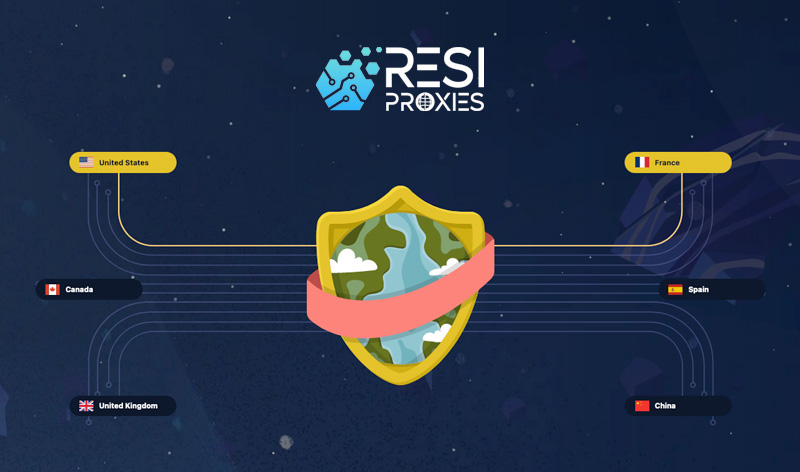
FAQ Residential Proxies
- General Information
- What are residential proxies?
- How To Get Discount Coupons A Complete Guide
- Datacenter Proxies: What They Are, How They Work?
- 5 Key Differences Between Rotating and Static Proxies
- HTTP vs SOCKS5 Proxies: Key Differences and Best Use Cases
- How to Use Proxies for Telegram: Secure Your Chats
- What to consider before buying residential proxies?
- Is it legal to use residential IP addresses?
- How Many Concurrent Sessions(Threads) Can I Use?
- What protocols do your proxies support?
- Can I try your residential proxies?
- What service restrictions do you have?
- Where can I use your proxies?
- Get Started
- How to create an account on your website?
- Where I have my profile details and password change?
- How can I contact you?
- I forgot my password, what can i do?
- Billing
- What methods of payment are available?
- How can I add money in Deposit?
- How to apply discount coupon code?
- How to place an order?
- What can I see in Billing section?
- How can I see my Traffic stats and Deposit balance?
- Do you offer refunds?

What protocols do your proxies support?

All of our proxies support HTTP(S) and SOCKS5 protocols.
Uses of HTTP proxies and SOCKS
For
a lot of businesses that need to cover a lot of goals and use cases, HTTP proxies are a good option. The server configuration of the HTTP
proxy can be set to meet your requirements. The main benefits of using an
HTTP proxy are as follows:
» Pristine data. An HTTP proxy can
comprehend data while serving as a middleman between a client and its
destination. This means that web data can be cached or content filtered
using an HTTP proxy. As a result, HTTP proxies aid in the removal of
irrelevant information from websites and prevent unnecessary data
collection.
» Advanced security. While detecting and rejecting
suspicious data packets, such as spyware or malformed content, that
attempt to enter your server, HTTP proxies provide an additional layer
of security.
» Boost the success rate of your scraper. HTTP request
header configuration is done with the help of HTTP proxies. You may be
able to reduce the likelihood of being blocked and facilitate access to
restricted targets with the assistance of this practice.
SOCKS
proxies can be utilized in numerous applications and scenarios due to
their compatibility with any network protocol or port. Several
advantages of SOCKS proxies are outlined below:
» Firewalls. As
previously stated, SOCKS proxies may be an excellent option in
situations involving firewalls. Clients may be unable to establish
arbitrary TCP connections to outside servers when they are surrounded by
a firewall. SOCKS proxies come into play at this point to make it
happen. In point of fact, the firewall may restrict a client's access to
particular websites via an HTTP connection, which also applies to HTTP
proxies.)
» Compatibility with any and all network ports and
protocols. SOCKS can connect via TCP, in contrast to an HTTP proxy that
only establishes an HTTP connection. Additionally, SOCKS5 proxies can
deliver datagrams over a network via a User Datagram Protocol (UDP)
connection, ensuring effective performance.
Main differences between HTTP and SOCKS proxies
The
type of proxy you should ultimately select is largely determined by
your objectives and requirements. Now that we are familiar with both
types of proxy, we can highlight their main differences.
Other FAQ topics

Datacenter Proxies: What They Are, How They Work?
General InformationWhen it comes to proxies, datacenter proxies stand out as the go-to choice for speed, affordability, and scalability. But what makes them so special? Whether you’re into web scraping, SEO, or automating tasks, understanding the power of datacenter proxies is crucial.

How to Use Proxies for Telegram: Secure Your Chats
General InformationLearn how to use proxies or Telegram to bypass restrictions, enhance privacy, and stay anonymous. Discover the best proxy options for telegram access.

5 Key Differences Between Rotating and Static Proxies
General InformationDiscover the differences between rotating and static residential proxies. Learn their benefits, use cases, and how to choose the right one for your needs. Explore premium options at ResiProxies.
Sign Up right now and discover Full Anonymity!
Get instant access to Residential Proxies all over the globe right in our user-friendly dashboard.
- support [at] resiproxies.net
- @resiproxies.net
- @resiproxies.net
- @resiproxies.net
© Copyright © 2025 ResiProxies.net.
All rights reserved.




